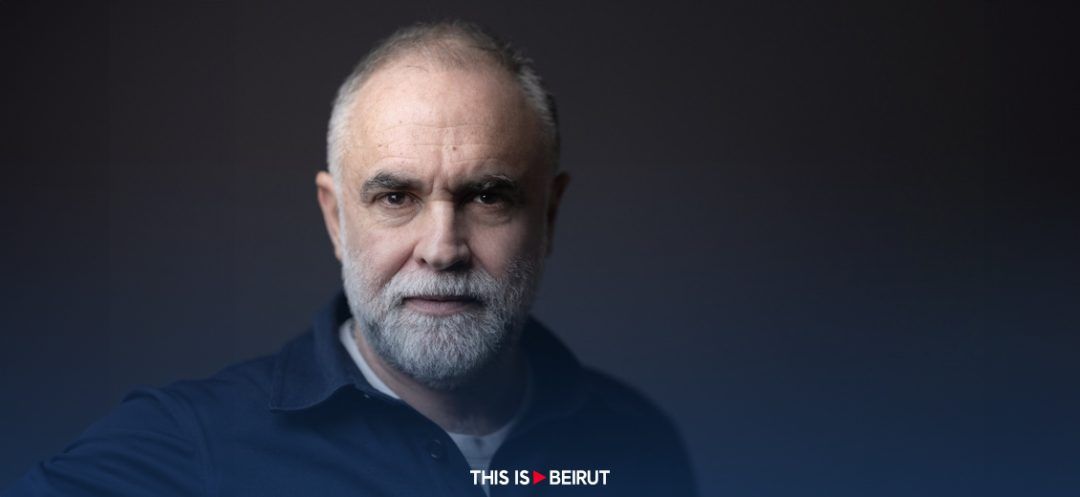
©Photo by Joël Saget/AFP
Brazilian filmmaker Karim Aïnouz, influenced by American director Todd Haynes, aims to “fill the gaps” in an industry that has long ignored women, minorities, and homosexuals through his filmography.
Karim Aïnouz, a 58-year-old Brazilian filmmaker, has made a name for himself by consistently placing women at the forefront of his films. French audiences last saw his work in the poignant and aesthetically pleasing film Invisible Life, which won the Un Certain Regard award at Cannes in 2019. The movie tackled the issues of the female condition and machismo in Brazil.
Now, Aïnouz is back in French theaters with Firebrand, a portrait of Catherine Parr, the last wife of England's King Henry VIII, starring Alicia Vikander and Jude Law. Although the world of the Tudors is far from his own, Aïnouz accepted the project when a producer approached him to make a film about this important historical figure who has been largely forgotten.
While he didn't initially see himself making a period film in costumes, Aïnouz realized that cinema has an "obsession with murdered and beheaded women, while others don't get their own films." Born to a Brazilian mother and an Algerian father he barely knew, Aïnouz also saw the film as an "incredible opportunity to tell the story of an empire, coming from countries that were colonized."
After studying architecture, Aïnouz went to the United States to study cinema, where he met Todd Haynes, the director of Carol and May/December. Aïnouz worked on Haynes' first feature film, Poison (1991), and cites him as a significant influence. "He's a master, he influenced me a lot," Aïnouz says. "He's someone who puts women at the forefront. Coming from a very masculine and very white cinematic tradition, it was a shock for me."
In the following years, Aïnouz made several short films before releasing his first feature in 2002. Madame Satã is loosely based on the character of João Francisco dos Santos (1900–1976), better known as "Madame Sata," a black man who was a thief, transvestite, cook, and prisoner at different points in his life.
This debut film encompassed all the themes dear to Aïnouz, who has been living in Berlin for about 15 years. In each of his works, there is an obsession with portraying marginalized characters due to their gender, skin color, and sexual identity. "My cinema is a bit about filling in the gaps. Filling in the gaps of a history of Brazil that has marginalized black populations and women," he says, citing the example of telenovelas where, for a long time, there were only "white characters."
Aïnouz went on to make other films, as well as a series for HBO, and Invisible Life, which established him as a director of note. In 2021, he presented his most intimate film at the Cannes Film Festival: a documentary about his discovery of Algeria, where he went to retrace his father's footsteps. "This film about my father turned into a film about my mother," he jokes.
Because he never really escapes the desire to tell stories about women. "I think my attachment to female characters comes from being raised in a house where there were no men. It was a matriarchal oasis," Aïnouz reflects.
Through his unique perspective and commitment to representing marginalized voices, Karim Aïnouz continues to make a significant impact on the film industry, one story at a time.
With AFP
Karim Aïnouz, a 58-year-old Brazilian filmmaker, has made a name for himself by consistently placing women at the forefront of his films. French audiences last saw his work in the poignant and aesthetically pleasing film Invisible Life, which won the Un Certain Regard award at Cannes in 2019. The movie tackled the issues of the female condition and machismo in Brazil.
Now, Aïnouz is back in French theaters with Firebrand, a portrait of Catherine Parr, the last wife of England's King Henry VIII, starring Alicia Vikander and Jude Law. Although the world of the Tudors is far from his own, Aïnouz accepted the project when a producer approached him to make a film about this important historical figure who has been largely forgotten.
While he didn't initially see himself making a period film in costumes, Aïnouz realized that cinema has an "obsession with murdered and beheaded women, while others don't get their own films." Born to a Brazilian mother and an Algerian father he barely knew, Aïnouz also saw the film as an "incredible opportunity to tell the story of an empire, coming from countries that were colonized."
After studying architecture, Aïnouz went to the United States to study cinema, where he met Todd Haynes, the director of Carol and May/December. Aïnouz worked on Haynes' first feature film, Poison (1991), and cites him as a significant influence. "He's a master, he influenced me a lot," Aïnouz says. "He's someone who puts women at the forefront. Coming from a very masculine and very white cinematic tradition, it was a shock for me."
In the following years, Aïnouz made several short films before releasing his first feature in 2002. Madame Satã is loosely based on the character of João Francisco dos Santos (1900–1976), better known as "Madame Sata," a black man who was a thief, transvestite, cook, and prisoner at different points in his life.
This debut film encompassed all the themes dear to Aïnouz, who has been living in Berlin for about 15 years. In each of his works, there is an obsession with portraying marginalized characters due to their gender, skin color, and sexual identity. "My cinema is a bit about filling in the gaps. Filling in the gaps of a history of Brazil that has marginalized black populations and women," he says, citing the example of telenovelas where, for a long time, there were only "white characters."
Aïnouz went on to make other films, as well as a series for HBO, and Invisible Life, which established him as a director of note. In 2021, he presented his most intimate film at the Cannes Film Festival: a documentary about his discovery of Algeria, where he went to retrace his father's footsteps. "This film about my father turned into a film about my mother," he jokes.
Because he never really escapes the desire to tell stories about women. "I think my attachment to female characters comes from being raised in a house where there were no men. It was a matriarchal oasis," Aïnouz reflects.
Through his unique perspective and commitment to representing marginalized voices, Karim Aïnouz continues to make a significant impact on the film industry, one story at a time.
With AFP
Read more



Comments